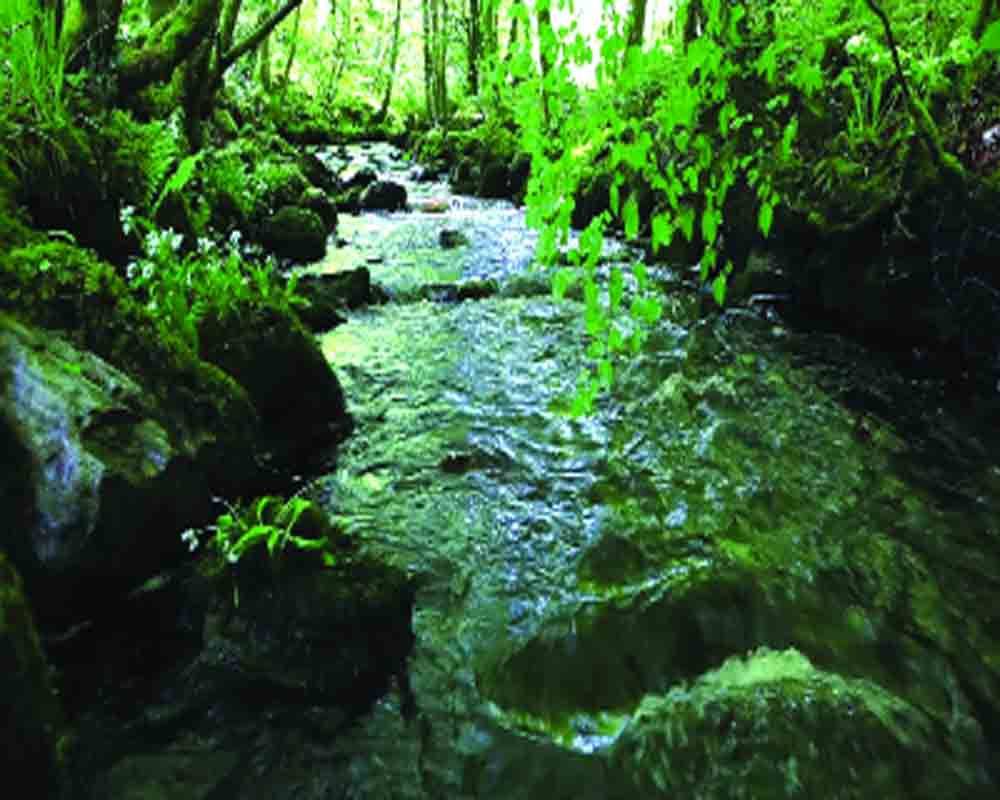To live in harmony with nature, was a way of life in ancient India
The preservation of nature has been a concern deeply rooted in the wisdom and culture of ancient India, as reflected in the sacred texts of the Vedas. The Vedas, a collection of ancient scriptures dating back thousands of years, not only provide spiritual guidance but also contain profound insights into the relationship between humanity and the environment.
Harmony with Nature
The Vedas emphasise the interconnectedness and harmony between humans and nature. They view nature as a divine manifestation, and everything within it is seen as interconnected and interdependent. The idea is that humans are not separate from the environment; they are an integral part of it. This viewpoint urges individuals to treat nature with respect and care.
"Vasudhaiva Kutumbakam," a Vedic mantra, translates to "The world is one family." This concept underscores the idea that all living beings, including animals, plants, and humans, share a common bond and are part of one large family.
Respect for All Life Forms
The Vedas also advocate for the reverence of all life forms. Ahimsa, the principle of non-violence, is a fundamental aspect of Vedic teachings. This principle encourages individuals to refrain from causing harm to any living being, whether through their actions, words, or thoughts. It extends to all creatures, from the smallest insects to the largest mammals.
Cyclical Understanding of Nature
The Vedas offer a cyclical perspective of nature, highlighting the recurring cycles of birth, growth, decay, and renewal. This understanding encourages people to live in harmony with these natural cycles rather than trying to dominate or exploit them. Vedic rituals and ceremonies are often performed in alignment with these natural cycles, reinforcing the idea of respecting the environment's rhythms.
Preservation of Natural Resources
The Vedic texts emphasise the sustainable use of natural resources. They stress the importance of conserving and protecting the environment for the well-being of current and future generations. Water, for instance, is considered a sacred element in Vedic culture, and there are numerous rituals and prayers dedicated to its conservation and purification. The Vedas also promote reforestation and the protection of forests, recognising their critical role in maintaining ecological balance.
Modern Implications
In today's world, where environmental challenges like climate change, deforestation, and pollution are pressing issues, the Vedic concern for preserving nature offers valuable insights. Here are some modern implications of Vedic wisdom:
Sustainable Living: The principles of sustainable living and responsible resource management align closely with Vedic teachings. Adopting eco-friendly practices and reducing our ecological footprint can help address contemporary environmental challenges.
Biodiversity Conservation: Vedic teachings encourage the preservation of biodiversity and the protection of endangered species. This reflects the importance of modern conservation efforts and the need to protect fragile ecosystems.
Water Conservation: The Vedic reverence for water highlights the importance of conserving and protecting this vital resource.
By adopting the principles of sustainability, non-violence, and respect for all life forms, we can work towards a more harmonious relationship with nature, as inspired by the wisdom of the Vedas. I
(The writer is a spiritual guide, views are personal)


























